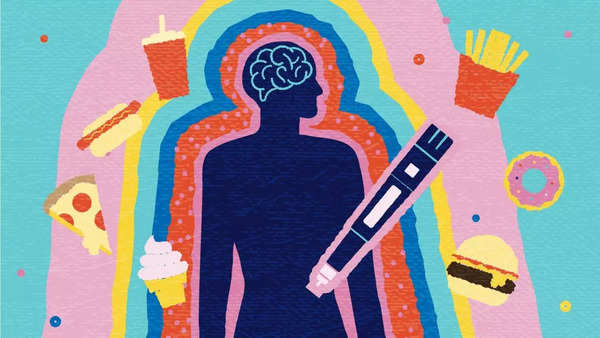Medicines for weight loss such as Ozempic, Mounjaro, and Zepbound have played a positive role in the fight against the obesity epidemic, and some have even touted them as “miracle drugs.” Although they were originally developed to treat type 2 diabetes, they have proven to be quite effective in weight loss, which in turn can lead to many other health benefits. However, a recent study published in Nature Medicine highlights some troubling side effects of the weight loss drug that people should be aware of.
Past studies have linked GLP-1 drugs to a variety of health benefits, from reducing the risk of dementia to fighting alcohol addiction, but a new study says their use may increase the risk of problems with the kidneys, pancreas and gastrointestinal tract. These little-known side effects need to be studied more because these weight loss drugs are relatively new and more research is needed to understand their full effects.
Researchers from Washington University School of Medicine in St. Louis and the St. Louis Veterans Affairs Health System conducted a study on more than 2 million people with diabetes who took GLP-1 medications. 2 million veterans treated for diabetes between October 1, 2017 and December 31, 2023 were included, and the patients included people of all ages, races, and genders. Researchers compared 175 health measures of veterans who took GLP-1RA drugs to treat diabetes with those who took more traditional drugs sold under brand names such as Jardiance, Glipizide and Januvia.

Advantages
Research has highlighted many benefits of GLP-1RA drugs, including reducing the risk of seizures and dependence on substances such as alcohol, cannabis, stimulants and opioids. People also experienced a reduced risk of suicidal ideation, self-harm, bulimia, and psychotic disorders such as schizophrenia. It has also been shown to reduce the risk of neurocognitive disorders such as Alzheimer’s disease and dementia.
“Interestingly, GLP-1RA drugs act on receptors found in brain regions involved in impulse control, reward and addiction — potentially explaining their effectiveness in suppressing appetite and addiction,” said Al-Ali, director of the Center for Clinical Epidemiology. at VA Health System St. Louis, where he is head of research and development. “These drugs also reduce inflammation in the brain and lead to weight loss; both of these factors may improve brain health and explain the reduced risk of diseases such as Alzheimer’s and dementia.’

Side effects
It is important to note that although these medications have a wide range of benefits, they are not without risks.
The study highlights the drugs’ potential side effects, including an increased risk of gastrointestinal problems such as nausea, vomiting, diarrhea and, in rare cases, stomach paralysis.
“They have been well documented in research and anecdotally,” Al-Ali said. “Our study confirmed these findings.”
Although this has been known before, the study highlights how GLP-1RA drugs can negatively affect the pancreas and kidneys. These side effects can be serious, so watch for signs of pancreatitis and monitor kidney function in people taking GLP-1RA medications. This is especially important because kidney problems can occur silently without any noticeable symptoms and reach an advanced stage with limited treatment options.











